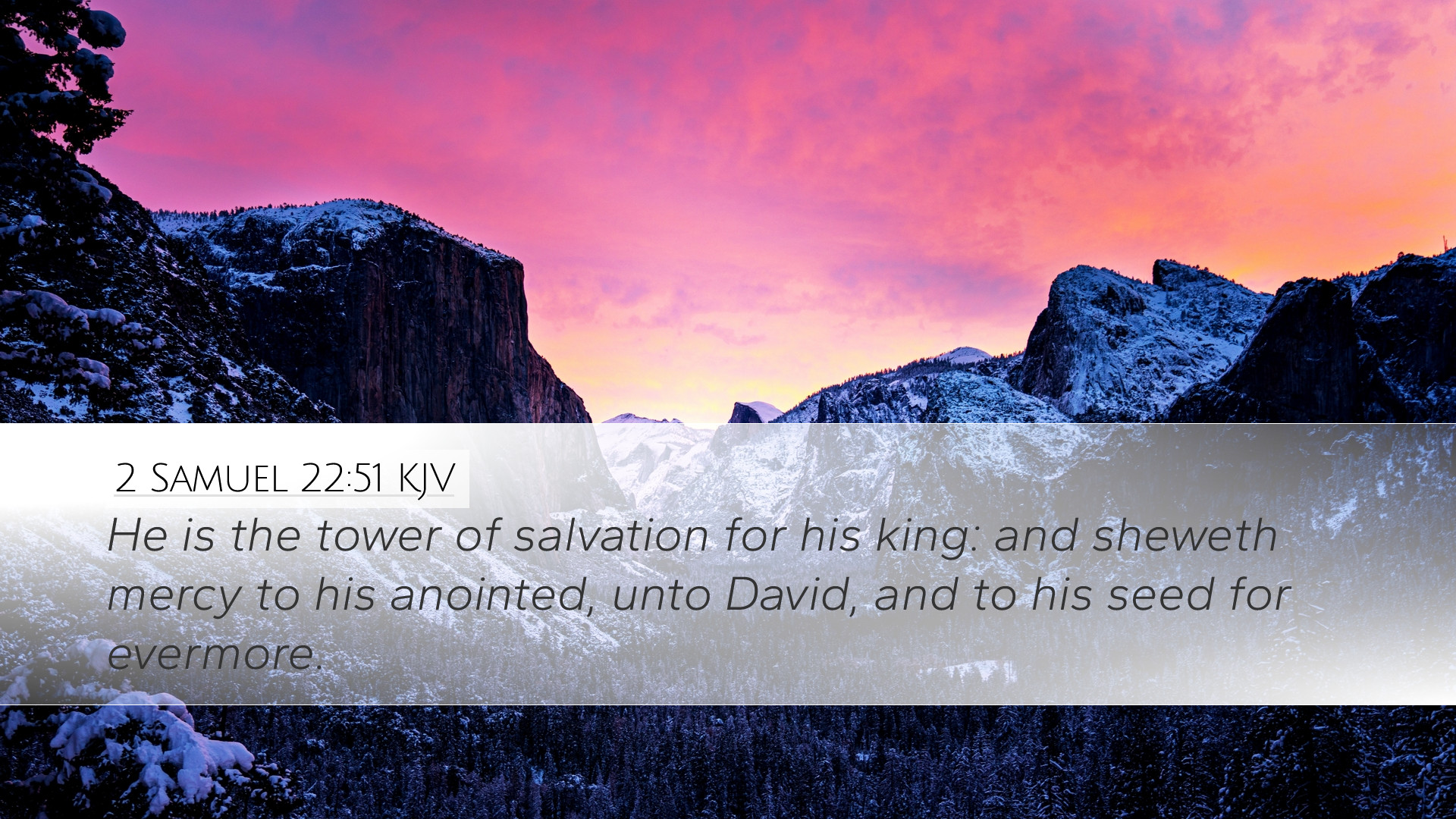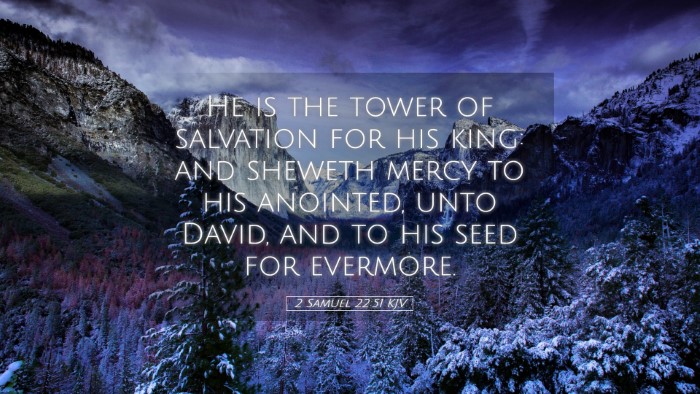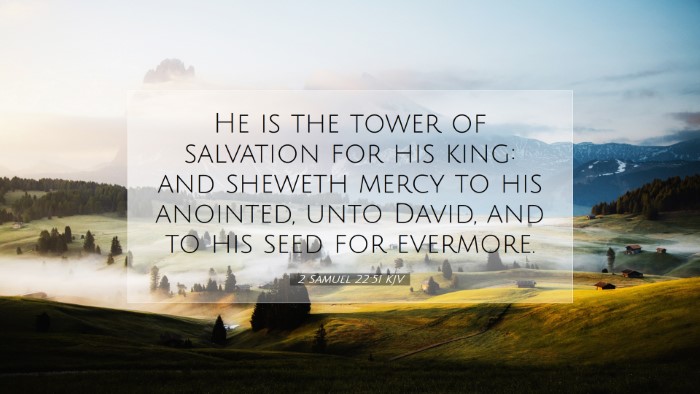Commentary on 2 Samuel 22:51
Bible Verse: "He is a tower of salvation for his king, and shows mercy to his anointed, to David and his descendants forever."
This verse comes at the conclusion of David's song of praise to God, which encapsulates the themes of divine deliverance and covenant fidelity. It serves as both a personal declaration by David and a theological affirmation of God's unwavering support for His chosen leader and his lineage.
Overview of the Verse
Contextual Understanding: 2 Samuel 22 is often recognized as parallel to Psalm 18, both of which recount the deliverance of David from his enemies. This particular verse highlights several key elements regarding God’s relationship with David and the significance of divine protection.
Theological Insights
-
God as a Tower of Salvation:
The imagery of God as a "tower" suggests a fortified place of refuge. As noted by Matthew Henry, this "tower" illustrates God’s strength and impenetrability. For David, this was not merely metaphorical; it was a lived experience of divine protection during times of great peril.
-
The Significance of Kingship:
David recognizes God as the "tower of salvation for his king." This affirmation underscores the idea that the king's strength and success are ultimately contingent upon God’s providential care. Albert Barnes articulates this by emphasizing the covenantal relationship between God and David, wherein God's blessing upon David's reign is highlighted as a demonstration of divine sovereignty.
-
Covenant Mercy:
The phrase "shows mercy to his anointed" signifies God’s steadfast love not only towards David but extends to his descendants. Here, Adam Clarke interprets the term "anointed" (or "messiah") as indicative of both a specific role for David and a broader theological notion that encompasses the future hope of an enduring dynasty. God's mercy thus becomes a central theme in understanding the legacy of David.
-
Mercy to the Descendants:
The commitment to David's “descendants forever” elegantly ties into the messianic promise. This eschatological dimension is significant for both Jewish and Christian theology, pointing towards the ultimate fulfillment in the person of Jesus Christ as the eternal heir of David's throne. Matthew Henry remarks that this mercy signifies a perpetual hope for God's faithfulness across generations.
Practical Applications
This verse serves as a strong reminder for followers of Christ about the characteristics of God as a source of security and salvation. As pastors and leaders study this text, they are encouraged to draw analogies that relate God’s protection and mercy to their congregations.
-
Trust in Divine Protection:
Just as David found refuge in God, modern believers are invited to reside in the stronghold that God provides amidst life's adversities. This truth encourages reliance on divine strength in pastoral ministry and personal faith.
-
Understanding Legacy:
Pastors and leaders should recognize their roles not merely as individual leaders but as part of a lineage within the covenant community of believers. This understanding encourages investment in future generations, fostering faith in God’s enduring promises.
-
Proclaiming Merciful Grace:
The mercy extended to David's descendants serves as a model for how the church can embody grace and mercy within its community. Leaders are called to exemplify this characteristic in their relationships and ministries.
Conclusion
In summary, 2 Samuel 22:51 encapsulates a profound acknowledgment of God’s sovereignty and mercy in the life of David and his lineage. It is a verse that not only celebrates God’s past victories but also lays a foundation of hope for future generations. As we reflect on this passage, may we be reminded of the importance of anchoring our faith in the immovable tower of the Almighty, who shows mercy to His anointed and their descendants throughout the ages.


